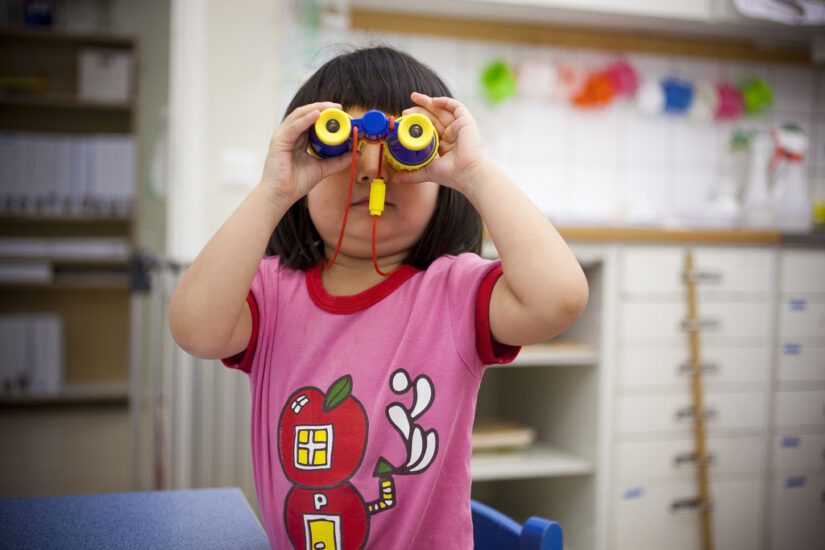Keeping your child on track
by Christine Bryant
Kindergarten is an important milestone in a child’s life. After all, it’s the first block in the foundation of education they will build over the next 12 years. But many children have their first school experience in preschool where they begin to develop essential skills. Here’s how a preschool should be helping your child to develop so that they can be on track for kindergarten.
Responsibility
Be sure that your preschool is asking kids to be responsible for their lunches, snacks and gear from home. “By the end of preschool, most kids can take on full responsibility for all of three items,” says Vicki Hoefle, a longtime professional parenting coach and educator. “When they do, it builds confidence, organizational skills and teaches responsibility.”
Rules
If your kid doesn’t like rules, you’re not alone. But Hoefle says it’s important for preschoolers to learn boundaries so when they get into the kindergarten setting, they understand structure. She suggests preschools invite the kids to help each other follow the rules, set up for activities and participate in cleanup. “If kids are invested in the space, supporting classroom rules and helping each other, they will be ready for more participation in kindergarten.”
Language
Preschool is an important time for educators to work with children on developing their language skills, incorporating lessons that will help them with items such as answering questions in complete sentences, retelling the plot of a story and even answering hypothetical questions such as “What would you do if you were thirsty?” Dr. Adiaha Spinks-Franklin, a Developmental-Behavioral Pediatrician with Texas Children’s Hospital, says by the time a child enters kindergarten, she should be able to know her parents’ first and last names, address and phone number and understand instructions containing multiple steps, direction words and objects with descriptions.
Play skills
A child entering kindergarten should know how to play simple card and board games, and they should use imaginative and futuristic play when playing with friends, Spinks-Franklin says. “They should be able to take turns, share and negotiate,” she said. “A kindergartener understands rules in a game and how to follow them.”
Leadership
Let your kids take the lead — and encourage preschools to as well, advises Brown University researcher and child development expert Richard Rende, who has conducted research with Elmer’s about the benefits of arts and crafts in education. “Creativity is promoted when kids take the lead,” Rende said. “The creative spark is lit when kids try to figure out how to make things work on their own.”
Confidence in academics
It’s important for preschool teachers and parents at your child’s age to help build confidence and self-esteem so they’re fully prepared to expand upon academic skills they should know at this age, says Frank Milner, president of Tutor Doctor. Some of these academic skills they should know by the end of preschool include looking at pictures and telling stories, counting to 10, talking in complete sentences, identifying rhyming words, identifying alphabet letters, sorting similar objects and bouncing a ball.
Independent living
Sure, no one expects a preschooler to live on his own. But learning independent living lessons in preschool can help set up a child for success in kindergarten. Spinks-Franklin says children entering kindergarten should be able to dress themselves, including buttons, zippers and tying shoes. He should also be able to make a simple meal, such as a bowl of cereal or sandwich and be able to brush his teeth on his own.
Fine motor skills
Preschool may seem like it’s all about fun, but at this age through lessons, children are learning important fine-motor skills. “Strong fine-motor skills strengthen finger muscles using play dough, clay, scissors, tweezers, scrunching paper, etc., to make fingers strong for cutting and writing,” says Lori Becker, professor of Early Childhood Education at Kaplan University.
Safety lessons
Preschool is a great time to reinforce what moms and dads teach at home about safety, Spinks-Franklin says. “A child entering kindergarten should understand basic rules of safety — do not run into the street, talk to strangers, walk away from parents in public places or take off her seatbelt while the car is moving.”
Happy memories
One of the most important items a preschooler should learn is how to create happy memories, and lessons at your child’s preschool present the perfect opportunity for this. “Smiles, laughs and some silliness keep kids engaged,” Rende said.
What important lessons does your child’s preschool teach that you think are important to a child’s development?


